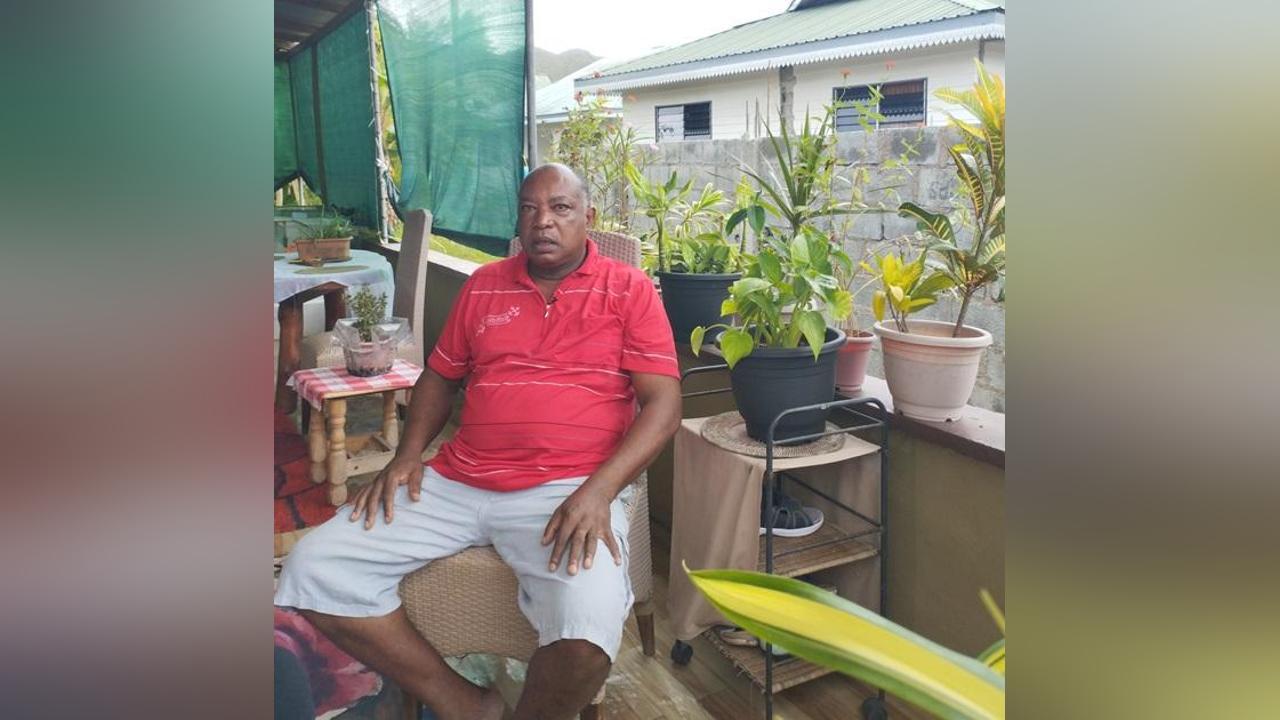By: Mandy Bertin
Africa-Press – Seychelles. Anecdotes are part of the Seychellois culture and heritage and one local artist keeps the tradition alive and retells them in his songs.
Marc Dubel is a well-known artist in Seychelles and his music is unique as he focuses on stories of the past told by great-grandparents and includes supernatural events.
Through his songs, Dubel gives people a chance to take a trip down memory lane and has successfully kept these anecdotes of Seychelles alive.
The artist, who now resides on Praslin Island, strives to preserve this part of the island nation’s culture because this is part of the Creole identity and what makes the Seychellois culture different.
Becoming an artist
Dubel’s career in arts started at a young age. He recalled that at that time his friends were members of the National Cultural Troupe. Well-known Seychellois musician, singer and composer, Patrick Victor, today the Seychelles’ honorary cultural ambassador, was the founder of the troupe and director of the first Seychellois Creole musical play called “Kastor,” which he wrote in in 1984, and was conducting auditions for various roles.
“My friends encouraged me to try out and I did. This was a big step, I went on stage and they gave me a role to play. After a while I got a call telling me that I was successful and from then on I did not look back,” he recalled.
“I landed the main role, as Kastor. The personality was a slave of African origins, exiled to Seychelles. At that time, Mahe, Seychelles’ main island was called Ile d’Abondance, meaning Island of Plenty. Kastor managed to escape into the forest. He freed himself from slavery. After I had played Kastor, whenever people came to Pointe Larue, my hometown, and asked for Kastor, residents would know you were talking about me,” he said cheerfully.
Dubel acted in several other plays and another remarkable one was called “Zen 66,” whereby he played the role of the late France Albert Rene, who was the President of Seychelles from 1977 to 2004.
“Everything needs a foundation. We need to revive plays. We see young people trying to revive theatre plays but support is needed for them to be able to soar higher,” Dubel said.Dubel told SNA he wrote ancetoal songs at a young age and that he liked to hang around people who were much older than him because they had lots of stories to share and this fascinated him.
“I did not make up these songs, they are based on true stories told by our elders. The song ‘Ziraf’ (Giraffe) is an example. Back in the days when I was at school, I remember there was an old man, he was very tall and people used to call him Ziraf, which is the Creole name for giraffe,” he recalled.
“The song talks about a man known as Msye Mondon (Mr. Mondon), a very authoritative man who was the registrar for Assumption Island, one of the outer islands of the Seychelles’ archipelago. His character did not make him popular among the workers. Whoever had to go to the island had to first register with him. One day, Ziraf went to the jetty to register to go there and to take an advance payment, but unfortunately, he did not know how to write his name, so this angered Mr Mondon,” said Dubel.
The song tells how the registrar how Ziraf told Mr. Mondon how his long neck helps him sense danger approaching and with that he was allowed to work on the island.
Dubel has also written songs on spirits in the woods, adding that on several occasions people have witnessed strange things when walking in the forests and at one point, they realised they were not alone.
The artist is now focusing more on Moutya songs but still has many other songs to write.
Dubel has his vision board on the walls of his mind, and on it, his dreams are displayed.
“When I retire, I wish to teach drama and music to young people. I want them to learn to develop their talents and keep these art forms alive,” Dubel said.
The future of our culture in a pioneer’s eye
“I am a man of my culture. I believe in it and I will keep striving to keep it alive and propel it forward. We need people who have our culture at heart to help artists, cultural enthusiasts, and pioneers. This country needs its culture and together we must work collectively to preserve it,” Dubel told SNA.
seychellesnewsagency
For More News And Analysis About Seychelles Follow Africa-Press






